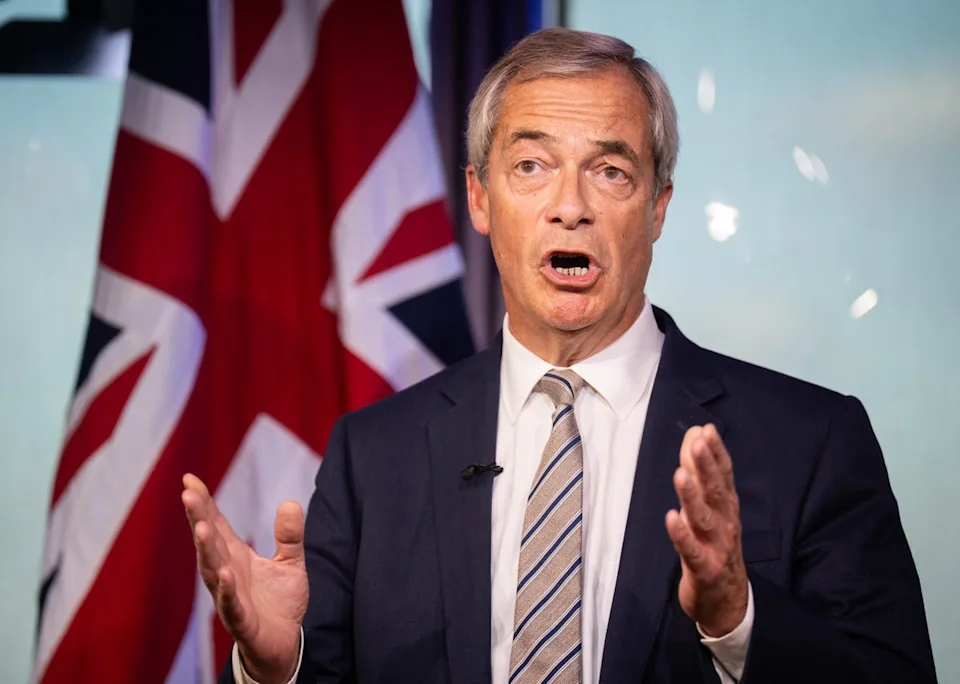Nigel Farage has shifted gears on one of his biggest economic pledges — cutting taxes right out of the gate.
The Reform UK leader now says tax reductions will only come after the government reins in public spending.
That’s a big change from earlier promises of an immediate £90 billion relief for families and businesses.
Speaking with The Times, Farage admitted that while tax cuts remain part of Reform’s vision, they’ll have to wait until the country’s finances are better managed.
His new message is clear: save first, cut later.
A New Approach to Fiscal Discipline
When Reform unveiled its 2024 election manifesto, it promised sweeping tax changes within the first 100 days — including lower fuel duty, the scrapping of inheritance tax, and higher income tax thresholds.
But the party’s latest tone is more cautious.
Farage emphasized that his government would never “borrow to spend” like Labour or the Conservatives have done in the past.
Instead, Reform would focus on reducing waste across the Civil Service, scaling back costly Net Zero initiatives, tightening Bank of England oversight, and cutting what he described as “benefits for foreigners.”
He added that a new industrial policy would aim to spark what he called a “cultural shift in attitudes towards work and success,” promising a “rigorous and fully costed manifesto” next time around.
Reform’s Tax Goals Now Only ‘Aspirations’
Reform’s Deputy Leader, Richard Tice, echoed Farage’s sentiment, calling the previously announced tax thresholds “aspirational” rather than immediate goals.
He said the government must first deliver major savings before slashing taxes, pointing fingers at Labour for worsening the economy over the last 15 months.
“A manifesto reflects a moment in time,” Tice told Times Radio.
“The principles haven’t changed — but the economy has.
Labour’s mismanagement means we now have to focus even harder on savings before delivering our reforms.”
Local Reality: Kent Council Faces a Tax Hike
The reality of Reform’s fiscal challenge is already playing out in Kent.
The party took control of Kent Council earlier this year after promising to cut council tax.
But just months later, the council now says it expects to raise taxes by about 5 percent.
Diane Morton, the new adult social care chief, told the Financial Times that increasing demand and budget pressures have left the council with little choice.
“We’ve got more demand than ever before and it’s growing,” she said. “We just want more money.”
According to council papers, Kent County Council faces a £27.9 million overspend against its £1.53 billion budget — a tough reality that highlights the difficulties in balancing ambitious pledges with financial constraints.
Conservatives Hit Back with ‘Fiscal Prudence’
Tory leader Kemi Badenoch didn’t waste time criticizing Farage’s revised plan.
During her party conference speech, she accused both Farage and Labour’s Keir Starmer of “shaking the same magic money tree,” promising everything while ignoring economic realities.
Badenoch said the Conservatives’ focus must remain on “fiscal prudence” and creating a better alternative rather than mimicking their rivals’ policies.
“We can’t beat them simply by attacking them,” she said.
“We have to offer something better.”
Despite defections from her party to Reform, including high-profile member Danny Kruger, Badenoch urged the Conservatives to remember their legacy of steering Britain through “its darkest days.”
Labour Calls Reform’s Plans ‘Built on Sand’
Labour wasn’t about to stay quiet either.
A party spokesperson said Farage’s latest comments only confirmed what critics had long argued — that Reform’s economic promises lack substance.
“Nigel Farage has finally admitted what everyone already knew,” the spokesperson said.
“Reform’s economic plans are built on sand.”
What Comes Next for Reform?
Farage is expected to outline his updated economic strategy in the coming weeks, seeking to calm concerns from both supporters and critics.
His task now is to prove that Reform’s vision of fiscal discipline can survive the pressures of real-world governance — especially as local councils already struggle with the strain of delivering public services.
The message from Reform’s leadership is now about patience, savings, and long-term reform — but whether that will be enough to maintain public confidence remains to be seen.
Share on Facebook «||» Share on Twitter «||» Share on Reddit «||» Share on LinkedIn
